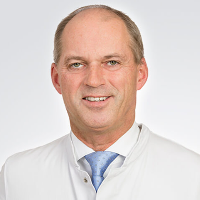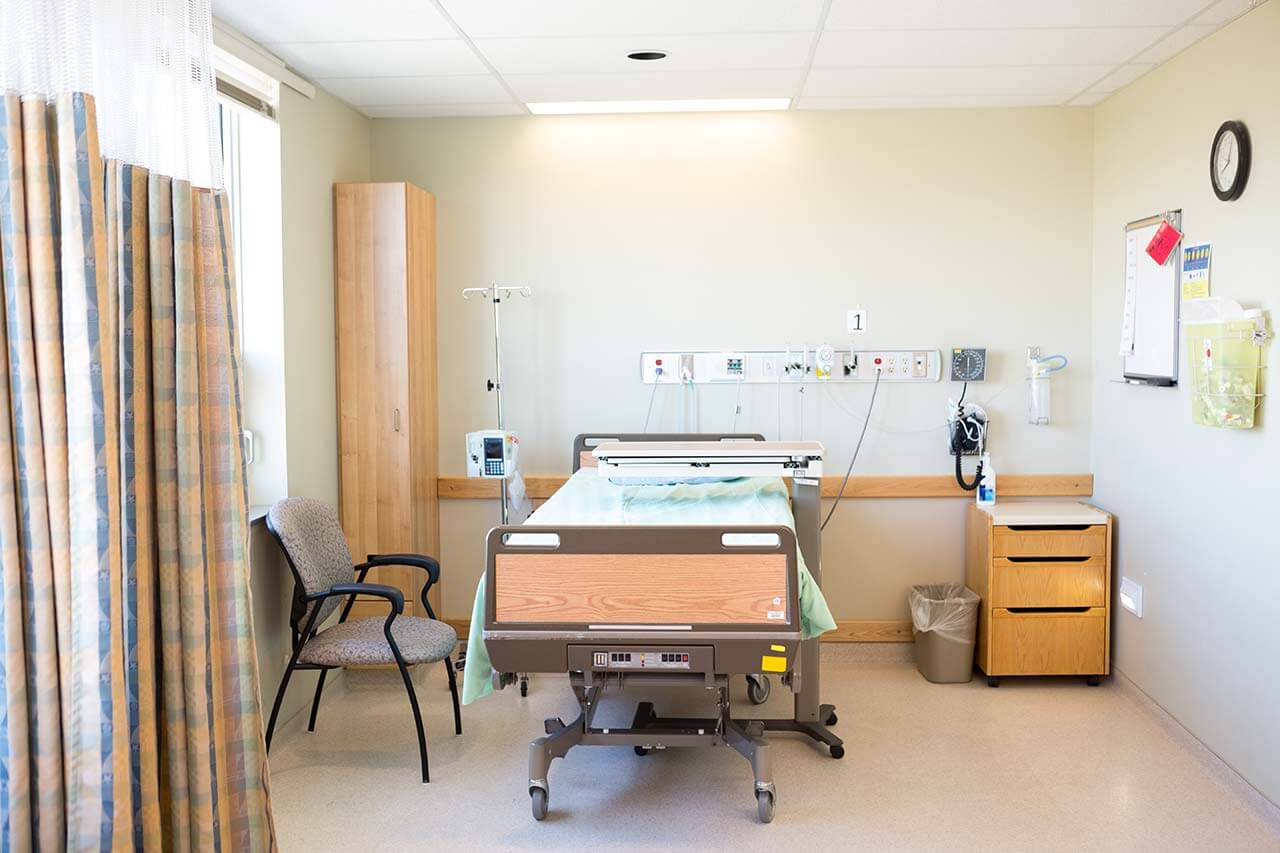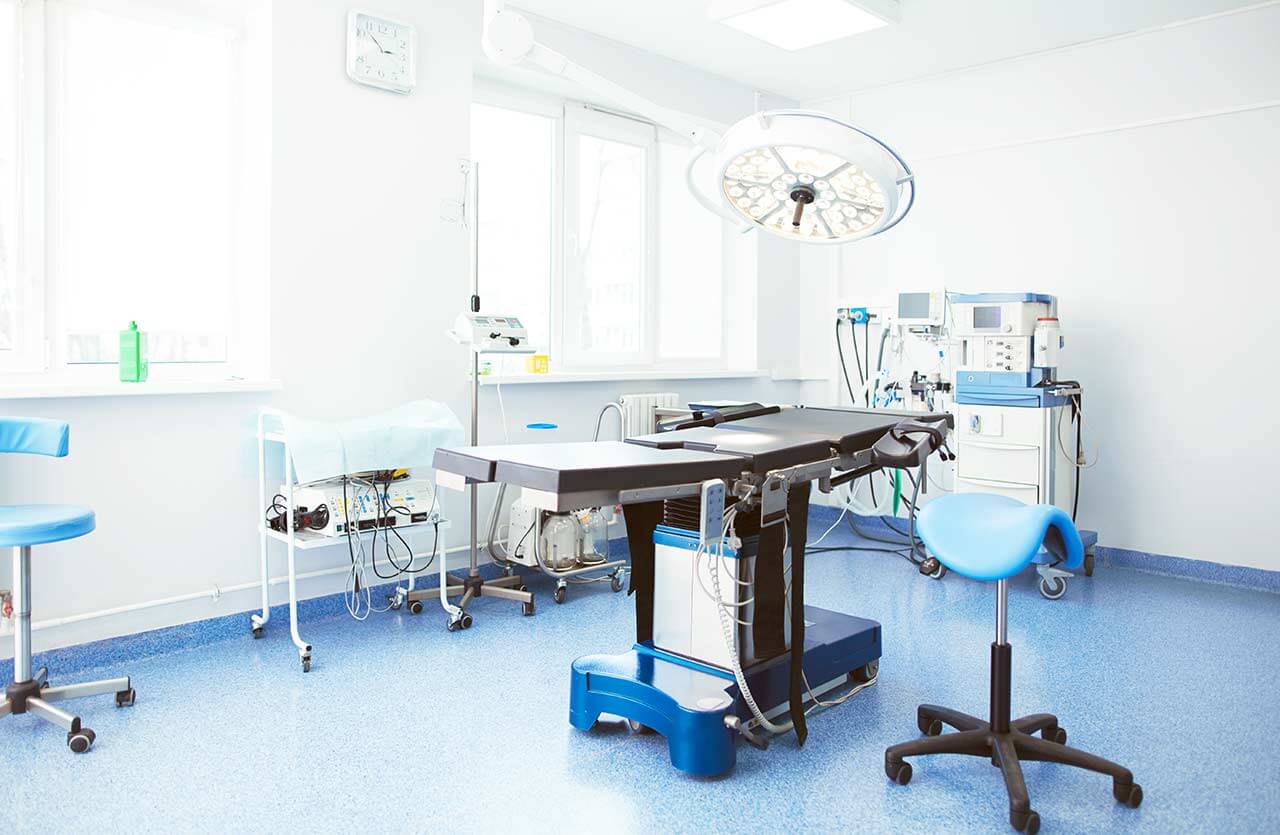
The program includes:
- Initial presentation in the clinic
- clinical history taking
- physical examination
- review of medical records
- laboratory tests:
- complete blood count
- general urine analysis
- biochemical analysis of blood
- indicators of inflammation (CRP, ESR)
- indicators blood coagulation
- x-ray examination of the knee
- MRI scan of the knee
- preoperative care
- arthroscopic or open reconstruction and autotransplantation
by injury of anterior cruciate ligament (ACL) - symptomatic treatment
- control examinations
- physiotherapeutic procedures
- orthopedic appliances
- the cost of essential medicines and materials
- nursing services
- full hospital accommodation
- explanation of future recommendations
Required documents
- Medical records
- X-ray examination, MRI/CT scan (if available)
Service
You may also book:
 BookingHealth Price from:
BookingHealth Price from:
About the department
The Department of Orthopedics and Trauma Surgery at the Schlosspark Hospital Berlin offers all modern therapeutic options for the treatment of musculoskeletal diseases and injuries. The priority clinical interests of the medical facility are knee and hip replacement surgery, including revision surgery to replace previously implanted artificial joints, arthroscopic interventions for pathological changes in the knee, hip, shoulder, and ankle joints, treatment of fractures, traumatic soft tissue injuries, and tendon, muscle, and ligament tears. In cooperation with neurosurgeons, the department's orthopedic team also treats patients with spinal diseases such as herniated discs, spinal stenosis, and spondylolisthesis. The department's operating rooms have state-of-the-art equipment and are adapted for minimally invasive interventions. When performing joint replacement surgery and spinal interventions, the department's surgeons use modern navigation systems, which ensure the highest safety of surgical manipulations. The health of patients is in the safe hands of a highly qualified team of doctors, whose main task is to provide effective treatment in a comfortable environment for the patient.
The department is headed by Prof. Dr. med. Ulrich Böhling. The specialist has more than 30 years of successful experience in the treatment of orthopedic pathologies and injuries of varying severity. He has many additional qualifications to guarantee patients an optimal treatment outcome. Dr. med. Böhling is actively engaged in the work of the German Society for Orthopedics and Orthopedic Surgery, the German-speaking Working Group for Arthroscopy, the Professional Association of Orthopedic Traumatologists, and other societies.
The key focus of the department's team of doctors is hip and knee replacement surgery. Such operations are performed at a specialized Center for Joint Replacement Surgery, which is part of the department. Hip and knee arthroplasty procedures have been performed here for decades, so patients can count on highly qualified medical care. Almost all joint replacement surgical interventions are performed using minimally invasive techniques, which contributes to the patient's rapid recovery. It is also important that the department's specialists prefer an individual approach to therapy when the patient receives a unique treatment regimen that takes into account their clinical data and goals. The department's orthopedists work only with high-quality endoprostheses produced by reputable international companies. Whenever required, the patient may be offered the implantation of an individually manufactured endoprosthesis.
When performing hip replacement surgery, the department's specialists often use the innovative surgical technique AMIS (Anterior Minimally Invasive Surgery). When using this technique, surgeons avoid dissecting tendons and muscles because the anatomical gap between the muscles is used to approach the hip joint. The AMIS technique ensures the formation of minor scars, which simplifies and accelerates the rehabilitation process. In addition, during the implantation of a hip joint prosthesis, the department's surgeons use advanced computer navigation systems that ensure the highest accuracy in positioning the prosthesis.
The department's doctors specialize in arthroscopic interventions. Arthroscopy is a low-traumatic surgery during which an arthroscope with a camera attached to it is inserted into the joint through a microincision, which allows imaging the joint cavity on the monitor screen in multiple zooms. Thus, the arthroscopic technique makes it possible to perform rather complex therapeutic manipulations without opening the joint. Arthroscopic interventions are most often performed for knee pathologies such as meniscal injuries and tears, cruciate ligament ruptures, cartilage tissue lesions, etc. Arthroscopy is also successfully used for pathological changes in the shoulder and ankle joints and rheumatic joint lesions. Arthroscopy is performed under local anesthesia, but general anesthesia may also be used in some cases. As a rule, the duration of the arthroscopic intervention is about an hour. After the intervention, the patient is under medical supervision for some time. The patient usually leaves the hospital the same day.
The department's orthopedists are competent in providing medical care to patients with spinal diseases. The department's specialists admit patients with spinal disc herniations, spinal stenosis, and spondylolisthesis. Patients with spinal diseases are treated in close cooperation with neurosurgeons. The first-line treatment for spinal diseases is usually conservative therapy, which is based on the intake of drugs, physiotherapy, massage, manual therapy, acupuncture, and other procedures. If the above-mentioned methods do not give the desired therapeutic effect, the department's doctors resort to surgical treatment. Patients with spinal disc herniation undergo prosthetic repair surgery, which involves the replacement of a destroyed intervertebral disc with an artificial prosthesis. The main option for surgical treatment of spinal stenosis is a decompression intervention, which aims to eliminate compression of the nerve structures located inside the spinal canal. Spinal fusion is performed in the department to stabilize the spine in patients with spondylolisthesis (vertebral displacement).
The department's therapeutic options are complemented by the treatment of musculoskeletal injuries of varying severity. The department's trauma surgeons successfully perform osteosynthesis procedures for the treatment of complex bone fractures and reconstructive plastic surgery for traumatic injuries of soft tissues, muscles, and ligaments. The department has vast experience in eliminating the consequences of injuries and other musculoskeletal lesions, including infectious ones. The department's trauma surgeons, along with colleagues from other departments, annually treat more than 18,000 patients with injuries in the Central Emergency Unit of the Schlosspark Hospital Berlin.
The department's clinical focuses include:
- Orthopedics
- Joint replacement surgery
- Hip replacement surgery, including the innovative minimally invasive AMIS technique
- Implantation of short-stem prostheses
- Implantation of movable prostheses
- Knee replacement surgery (minimally invasive techniques)
- Hip replacement surgery, including the innovative minimally invasive AMIS technique
- Arthroscopic surgery
- Knee arthroscopy
- Surgery for traumatic meniscal injuries
- Surgery for cruciate ligament tears
- Surgery for patellar instability
- Cartilage transplant procedures
- Hip arthroscopy
- Surgery for impingement syndrome
- Surgery for acetabular labrum lesions
- Cartilage transplant procedures
- Shoulder arthroscopy
- Surgery for impingement syndrome
- Surgery for shoulder instability
- Surgery for rotator cuff tears
- Surgery for biceps tendon ruptures
- Knee arthroscopy
- Spinal surgery
- Intervertebral disc replacement surgery
- Decompression surgery for spinal stenosis
- Spinal fusion for vertebral displacement
- Surgery for spinal tumors
- Kyphoplasty for osteoporotic vertebral fractures
- Conservative and surgical treatment for spinal fractures
- Conservative and surgical treatment for inflammatory processes in the spine
- Interventional pain management for chronic back pain
- Joint replacement surgery
- Trauma surgery
- Conservative and surgical treatment for bone fractures
- Reconstructive plastic surgery for soft tissue, muscle, and ligament traumatic injuries
- Other medical services
Curriculum vitae
Higher Education and Postgraduate Training
- 1985 - 1992 Medica studies, Free University of Berlin.
- 1995 Doctoral Degree, Free University of Berlin.
- 1995 Theoretical foundations of the specialty in the field of Emergency Medical Care.
- 1996 Theoretical foundations of the specialty in the field of Radiation Protection.
- 1998 Theoretical foundations of the specialty in Chiropractic.
- 1999 Board certification in Orthopedics and Trauma Surgery.
- 2002 Additional qualification in Special Orthopedic Surgery.
- 2008 Venia Legendi in Special Orthopedic Surgery.
- 2010 Additional qualification in Special Trauma Surgery.
Professional Career
- 1993 - 1994 Internship, Department of Orthopedics, Hospital Neukolln, Berlin.
- 1994 - 1995 Assistant Physician, Department of General Surgery, Naëmi-Wilke-Stift Guben Hospital, Guben.
- 1995 - 1997 Assistant Physician, Department of Orthopedics, Hospital Neukolln, Berlin.
- 1997 Assistant Physician, Royal National Orthopedic Hospital Trust Stanmore, London.
- 1998 - 1999 Assistant Physician, Department of Orthopedics, Hospital Neukolln, Berlin.
- 1999 - 2000 Assistant Physician, Department of Trauma Surgery and Reconstructive Surgery, Trauma Hospital Berlin, Berlin.
- 2000 - 2004 Senior Physician and Managing Senior Physician, Vivantes Auguste-Viktoria Hospital Berlin, Berlin.
- 2004 - 2011 Managing Senior Physician, Department of Orthopedics and Trauma Surgery, Emil von Behring Central Hospital/Oscar Helene Heim Foundation.
- 2012 - 2016 Head Physician, Park-Clinic Weissensee Berlin, Berlin.
- Since 2010 Professorship, Technical University of Berlin.
- Since July 2012 Head Physician of the Department of Orthopedics and Trauma Surgery at the Schlosspark Hospital Berlin.
Clinical Focuses
- Hip, knee, shoulder, and ankle arthroplasty, including revision interventions.
- Spinal surgery with a special focus on intervertebral disc microsurgery, operations for spinal stenosis, and operations for spinal instability.
- Arthroscopic operations on large joints, cruciate ligament replacement, and shoulder stabilization.
- Treatment of injuries and reconstructive surgery.
Memberships in Professional Societies
- German Society for Orthopedics and Orthopedic Surgery.
- German Spine Society.
- German-speaking Working Group for Arthroscopy.
- Professional Association of Orthopedic Trauma Surgeons.
- Association of South German Orthopedic Surgeons.
- German-Japanese Society for Orthopedics and Trauma Surgery.
Photo of the doctor: (c) Schlosspark-Klinik GmbH
About hospital
The Schlosspark Hospital Berlin began its work in 1970 and, during this time, has gained an excellent reputation not only in Germany but also in the international medical arena. The Schlosspark Hospital Berlin is an academic hospital of the Charite University Hospital Berlin, which is one of the best medical centers in Europe and throughout the world. The successful clinical practice of the medical facility is based on an advanced medical and technical base, access to the very latest and most effective treatment methods, and the exceptional competence and experience of medical personnel. The hospital is located in the picturesque Charlottenburg Park, away from the hustle and bustle of the city, which contributes to the peace of mind of patients.
The hospital's bed fund includes 340 beds. Structurally, the hospital consists of 12 specialized departments with narrowly focused centers integrated into them, which are responsible for the treatment of a particular group of diseases. More than 14,000 patients are treated annually at the hospital. One of the priorities of the medical facility is emergency medical care. With an annual number of more than 10,000 surgical interventions, including operations of high complexity, the department is particularly interested in surgical treatment.
The hospital's medical team consists of more than 900 employees. The departments at the hospital are headed by professors who are well-known in the medical community and have impressive clinical experience and outstanding professional achievements. In the course of diagnostics and treatment, an individual approach is used for each patient, and his needs and wishes are also taken into account. The hospital pays due attention to patient care during the therapeutic process. Despite state-of-the-art medical equipment and the automation of many processes, a humane and respectful attitude towards the patient is the first priority for the doctors at the hospital. The specialists are always open to dialogue and do their best to achieve the best treatment outcomes.
Photo: (с) depositphotos
Accommodation in hospital
Patients rooms
The patients of the Schlosspark Hospital Berlin live in comfortable rooms with light colors. Each patient room has an ensuite bathroom with a shower and a toilet. The standard patient room includes a comfortable automatically adjustable bed, a bedside cabinet with a pull-out table, a wardrobe, a table and chairs for receiving visitors, a telephone, and a TV. Wi-Fi is available on the territory of the hospital. The hospital also offers enhanced-comfort rooms with a more exquisite design.
Meals and Menus
The patient and their accompanying person are offered three meals a day: breakfast, lunch, and dinner. A new menu is prepared for patients each week. Only high-quality and fresh products are used for cooking meals. The menu includes dietary and vegetarian dishes. The patient will be offered an individual menu if necessary.
There is a cozy cafe on the ground floor of the hospital that serves full breakfasts, a wide range of hot and cold drinks, delicious desserts, and snacks.
Further details
Standard rooms include:
Accompanying person
The accompanying person may stay with you in the patient room or at the hotel of your choice during the inpatient program.
Hotel
You may stay at the hotel of your choice during the outpatient program. Our manager will help you choose the best option.




